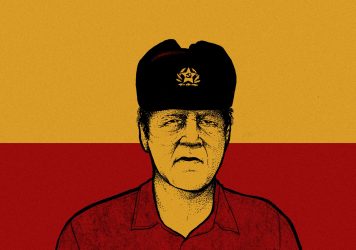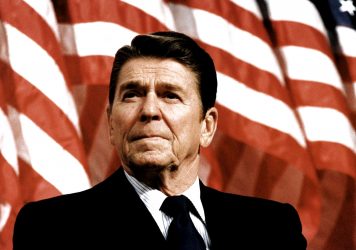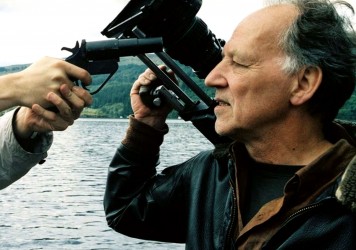The former president of the Soviet Union sits down to discuss his personal legacy and the current state of things.
It was perhaps only a matter of time before Werner Herzog made a film about Mikhail Gorbachev. From fictional triumphs such as 1972’s Aguirre, the Wrath of God and 1982’s Fitzcarraldo, to startling documentaries such as 2005’s Grizzly Man, the German director’s work often focuses on single-minded men who take on seemingly impossible, thankless tasks in the face of insurmountable odds.
Gorbachev’s attempt to push through democracy in the Communist Soviet Union while serving as its final leader is surely within the Herzogian remit, while he was also awarded the Nobel Peace Prize for his part in ending the Cold War.
For Meeting Gorbachev, Herzog shares his directing credit with Andre Singer who has served as producer or executive producer for Herzog 14 times since 1992. Yet Herzog has written and narrated the film himself and is shown on screen as Gorbachev’s interviewer. The bulk of the film comprises choice cuts from three sit-down sessions between the two, with Herzog also providing spoken context with a potted history of Gorbachev’s upbringing in rural Stavropol and subsequent rise within the Communist Party over archive stills and news footage.
In addition, Herzog speaks to several key players from Gorbachev’s time in power. Ex-Hungarian prime minister Miklós Németh and former German Chancellor Helmut Kohl’s advisor, Horst Teltschik, are enlightening for a neighbouring European perspective on Gorbachev’s work, while the then-US Secretary of State George Shultz discusses how Gorbachev and American president Ronald Reagan worked together to thaw the icy US-Soviet relationship.
Gorbachev, through ushering in perestroika (reform of the political and economic system) and glasnost (increased transparency) while in power, is one of the most important political figures of the late 20th century and a particular hero to Herzog – and for good reason. The dissolution of the Soviet Union paved the way for German reunification, which in turn meant all Germans could enjoy their first, real sustained freedom since before World War Two. Soviet Bloc countries across Eastern Europe could finally look to a brighter future.
Herzog’s interest in and love for Gorbachev is understandable, and the momentous account of political history told here is a fascinating and significant one, but the tone does veer too far towards hagiography. There is very little critical questioning of the veteran Russian statesman and his policies, while the film also lacks anything truly revelatory. You feel for Gorbachev when discussing the early death of his wife Raisa and applaud him for his efforts in pushing for nuclear disarmament. But you also yearn for information you can’t read within five minutes of poking around online.
The wish to see more of the late Margaret Thatcher is a strange one, but it would have been interesting to see a British Prime Minister who had such an oppositional political ideology to Gorbachev given more screen time (she is shown and heard from fleetingly). An important and interesting documentary about tumultuous times, then, but one that slightly suffers for being a touch too dry and over-friendly towards its subject.
Published 7 Nov 2019
Herzog on Gorbachev.
An important story, but nothing particularly new or amazing in the telling.
Lacks the wow-factor typically found in a Herzog doc.

The German filmmaker discusses the subversive message at the heart of his political documentary Meeting Gorbachev.

The 40th POTUS is the subject of this interesting film on a time when public relations and politics began to merge.

Two writers make their case for the most eccentric moment in the director’s career.